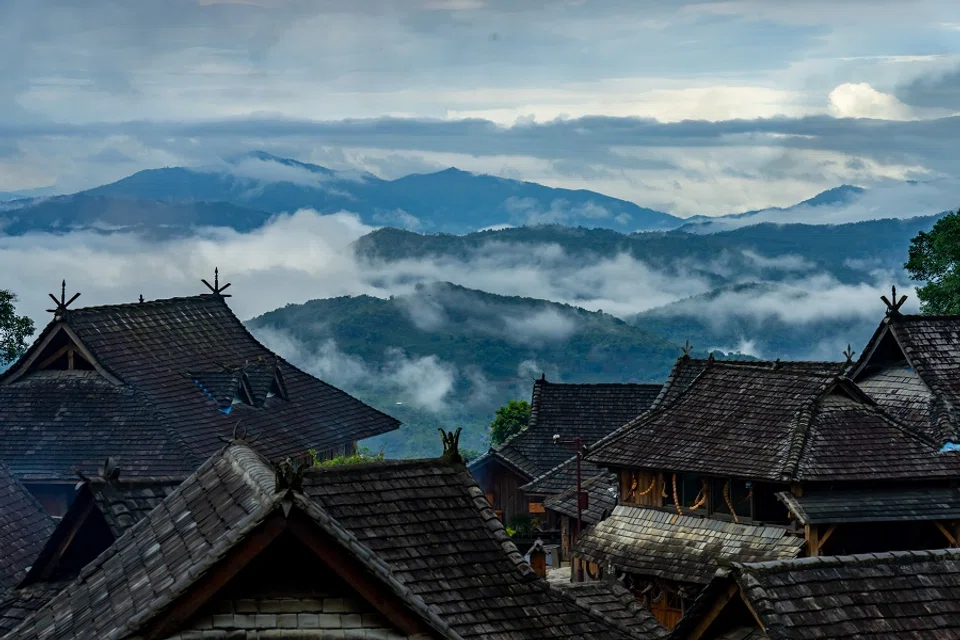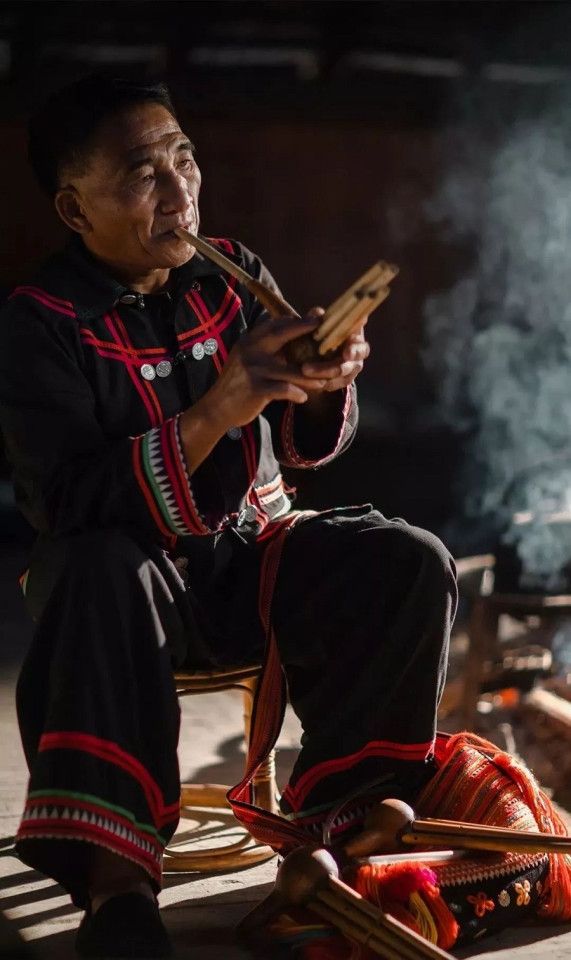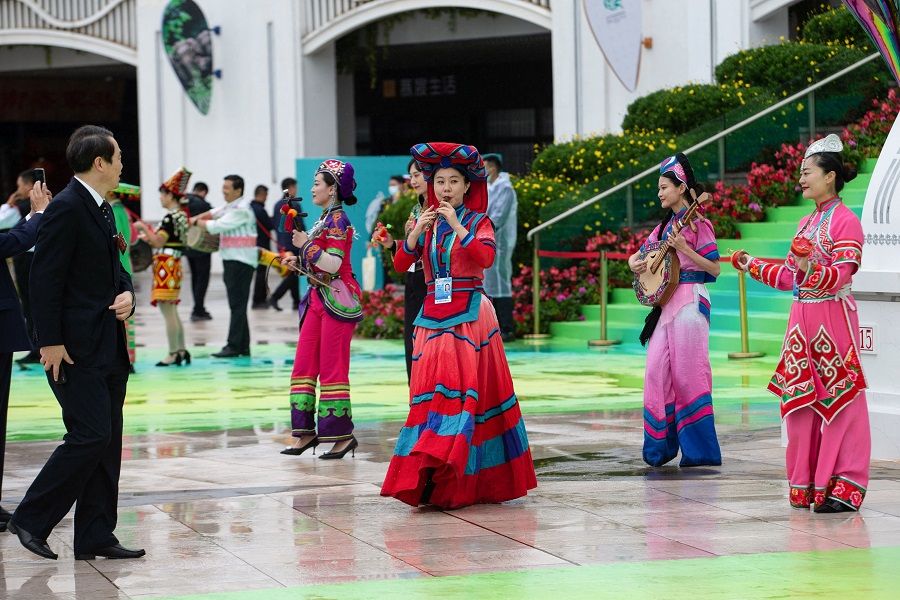Can't bear to part: A cultural historian in Yunnan's Pu'er

On my first trip to the city of Pu'er in Yunnan, I met locals from all walks of life. From government officials to teahouse waiters, I detected traces of the region's exotic culture - a certain carefree born of living at the frontiers; a character wrought from wrestling the mountains and the rain. These traits are the exact opposite of the over-civilised and restrained qualities of the Han (汉) people.
The tanned-skin locals include the Lahu (拉祜), the Wa (佤), the Yi (彝), the Hani (哈尼) and the Dai (傣) peoples. When the locals see tourists in their midst, they treat them like their long-lost relatives, greeting them passionately. Interestingly, their enthusiasm seems genuine and not rehearsed. It is totally different from the hospitality you'd get at Hong Kong's five-star hotels.
How should I put it? The greatest way a Hong Kong host makes you feel welcome is by treating you like British royalty. He'd supply you with butlers who'd hand you a handkerchief if you so much as raise an eyebrow, lest you have no tissue to blow your nose.
In contrast, the locals of Pu'er are simple and down-to-earth. They don't carry handkerchiefs. If you feel like sneezing, just turn around to the great outdoors and sneeze all you want - none of that will pollute the fresh air of the mountains.

The residents of Pu'er are mainly ethnic minority peoples of the Lahu, Wa, Yi or Dai people. From their perspective, Pu'er is the home where they were born and raised; their lives are centred around the Simao (思茅) district of Pu'er and they have no inkling that they are on the periphery of Han perceptions and values. In fact, since they are in the majority on this land, they - rather than people like me, who are the true "ethnic minority" here - should be called the "ethnic majority".
I only spent around three or four days in Pu'er and mostly interacted with the Lahu and Wa peoples. The young men are enthusiastic and upbeat while the young women are outgoing and generous. They love to sing and dance when they're happy; at the drop of the hat, they would liven up the scene with a party vibe. The locals told me that the Lahu people sang songs in five distinctive genres: celebratory songs, ballads, children's songs, love songs and funeral songs.
The Lahu people count the lusheng (芦笙, a reed pipe wind instrument), bamboo jaw harp (口弦), sanxian (三弦, a three-stringed traditional Chinese lute), xiao (箫, a vertical end-blown flute) and dizi (笛子, a side-blown flute) as their traditional musical instruments. However, they mostly play the guitar now.
A Taiwanese tea connoisseur who came along on the trip had visited Pu'er before. She told me about a beautiful original folk song called Can't Bear to Part (《实在舍不得》) and how she's always moved to tears upon hearing the song and can't bear to leave the place.
I asked, "An original folk song? Is it an old traditional folk song?" I must say the locals are really honest - they said that it was a new song written to the tune of an old traditional folk song. They had never heard of the term "original" (原生态) and were unsure if the song was original or not. They just knew that it had a catchy tune and everybody loved singing it. The song even made it to a CCTV programme and was a huge hit with everyone who heard it.

During our stay in Pu'er, we attended a banquet where a group of Lahu singers dressed in traditional costumes serenaded us with the beautiful Can't Bear to Part. The men played their guitars while the women danced and sang along. What a lively scene!
The song was really catchy and got us singing along in no time. Some even got up on their feet and swayed to the music. It was as if we'd entered the temple of a new religion and become even more devout than the original devotees. I later found the song lyrics and found them indeed touching and resonant:
The tunes I know are countless, like grains of sand,
But none of them are about partings.
The words I want to say, are as many as the tea leaves on the hills,
But they're not about partings.
I am most afraid of partings,
It makes me as sad as can be.
I can't bear, oh I can't bear,
I just can't bear to part.
You have yet to see the scenery, as vast as the sea of wildflowers,
And all the rivers that are missing you.
The love you left behind, blazing like a cauldron,
There is so much more wine that you have not drunk.
I am most afraid of partings,
It makes me as sad as can be.
I can't bear, oh I can't bear,
I just can't bear to part.
How I wish you would visit again,
It makes me as happy as can be.
I can't bear, oh I can't bear,
I just can't bear to part.
I just can't bear to part.
At the farewell party at the end of our conference, the singers sang Can't Bear to Part again, and all of us sang our hearts out. With tears in her eyes, the Taiwanese tea connoisseur promised to visit again.

On our way to the airport, we were taken care of by Zhou, a young man from the Wa tribe. He told us that the songs of his people are lovely too, and certainly do not pale in comparison to the Lahu people's. Everyone immediately asked him to sing a song for us - a nice love song perhaps? Zhou immediately sang Shutou Ge"(《梳头歌》, lit. combing hair).
The man starts first:
Girl, give your man a nice cigarette,
And a cup of wine to drink,
The moon hangs above the trees,
Give my hair a comb.
The woman responds:
The mountains and the sea may stand between us, but not your voice,
My man's voice is like the spring breeze,
As long as you don't find me unattractive,
Why would I forget you?"
Zhou sang off the cuff in a high-pitched tone, but it sounded really good - it was as melodious and beautiful as a nightingale's song.
